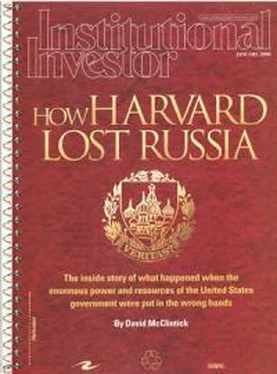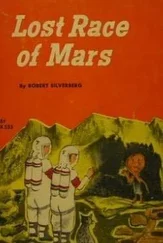"I have a vague recollection of having mentioned to a colleague some years ago . . . that whatever the CPC might or might not do, it could not act so long as the case was in the courts," Frieden told II in an e-mail comment. "When there is a prior court decision, the CPC . . . would not normally need to carry out much in the way of fact-finding because presumably the courts would have done this."
With no action forthcoming by the committee after the court's ruling, it's understood that members of the faculty of arts and sciences have taken up the Shleifer case with Dean Kirby on at least half a dozen occasions of varying formality over the past 16 months.
One instance was a meeting early in the academic year that began in September 2004, less than two months after the federal court formally adjudicated Shleifer's liability for conspiring to defraud the U.S. government. A faculty member asked Kirby why Harvard should defend a professor who had been found liable for conspiring to commit fraud. The second confrontation came early in the current academic year when another professor asked Kirby why Harvard should pay a settlement of $26.5 million and legal fees estimated at between $10 million and $15 million for legal violations by a single professor and his employee, about which it was unaware. On both occasions Kirby is said to have turned red in the face and angrily cut off discussion.
On at least one other occasion, Summers himself told members of the faculty of arts and sciences that the millions of dollars that Harvard paid in damages did not come from the budget of the faculty of arts and sciences, but didn't say where the money came from. Those listening inferred he meant that the matter shouldn't be of concern to the faculty and that they shouldn't raise it, a curious notion, given that Shleifer was one of their own.
A spokesman for Summers said he was "unable to schedule" an interview with Summers for II in December, when this article was being prepared. As the lawsuit was against the university, not just the faculty of arts and sciences, the settlement came from "university funds available for these purposes," the spokesman added.
A spokesman for the faculty of arts and sciences told II , "Consistent with its practices the FAS is not in a position to comment on any internal personnel matter involving a member of its faculty." The spokesman added that Dean Kirby "would never flare with anger."
Publicly, Harvard has made only one statement about the affair since the settlement in August. "We welcome having this matter behind us," vice president and general counsel Robert Iuliano declared.
For the most part, the Harvard community -- students, faculty and alumni -- have been silent about the Shleifer case. This stands in clear contrast to the other imbroglios of Summers' tenure, over religion professor Cornel West and women in science. When it came to Shleifer, many professors, though upset, have preferred to stay in the shadows, wary of the close friendship he has with Summers.
Nonetheless, a few of Harvard's most senior professors are beginning to break the silence. One such is Harry Lewis, who has taught mathematics and computer science at Harvard for 32 years. He taught Bill Gates as an undergraduate in the 1970s and was dean of Harvard College from 1995 until 2003, when he was dismissed in a restructuring of the college administration and returned to teaching full-time.
"The University is losing its moral authority over undergraduates . . . by failing to respond to faculty malfeasances with the same high-mindedness with which it treats undergraduates," Lewis writes in his forthcoming Excellence Without a Soul: How a Great University Forgot Education.
Lewis contrasts the Shleifer case with the way Harvard approaches student misconduct, demanding "openness and honesty" of the student, investigating the alleged infraction promptly and imposing sanctions, including expulsion where appropriate. Lewis also invokes recent cases of academic misfeasance by two prominent law professors -- Charles Ogletree and Lawrence Tribe. Both were accused of "misusing the words of others" in books they had written. When the "errors" were discovered, they apologized. The episodes were investigated by panels of Harvard eminences, including former president Derek Bok, now a university professor, who determined that the infractions were "inadvertent." In the case of Tribe, Summers and law school dean Ellen Kagan announced last April that his error was a "significant lapse in proper academic practice." The Summers administration announced no action against Tribe, however, and the Harvard Crimson , the undergraduate daily newspaper started in 1873, took strong exception. "The evident double standard," it editorialized, "sets a poor example for the student body and for the wider community. A student caught committing a similar crime might face the termination of his academic career."
Lewis, in his new book, draws a stark contrast between the Tribe and Ogletree cases, on the one hand, and the Shleifer scandal on the other.
"The Shleifer matter is strikingly different," Lewis writes. Shleifer has never acknowledged doing anything wrong. Summers has said nothing. And so far as is known, there has been no internal investigation or sanction. "An observer trying to make sense of the University's position on Shleifer, Ogletree and Tribe is driven to an unhappy conclusion. Defiance seems to be a better way to escape institutional opprobrium than confession and apology. . . . And most of all being a close personal friend of the president probably does one no harm."
Greek and Latin professor Richard Thomas, the chairman of the classics department and a member of three key committees of the faculty of arts and sciences, agrees with Lewis's last point at least: "If I had been found liable for conspiracy to defraud the U.S. government, with the result that Harvard had to pay a substantial settlement, I can't imagine there would have been no consequences for me," Thomas tells II .
Although Lewis does not declare Summers unfit to be president of Harvard, he comes close. The faculty vote of no confidence in Summers last spring indicates they believe he does not "meet the Harvard standard," Lewis writes. Summers doesn't offer "leadership they could respect. The Harvard faculty would rather mind its own business than vote down the president; they did not do so for sport." Summers, the computer scientist says, has "failed to bring honor to the institution."
For the record
This article broadly reflects facts as determined by Judge Douglas Woodlock of the U.S. District Court in Boston in his Memorandum and Order of June 28, 2004, in the case of United States of America v. The President and Fellows of Harvard College, Andrei Shleifer, Jonathan Hay, et al. After reviewing the parties' court papers as well as nearly 60 depositions and more than 1,000 documentary exhibits in the lawsuit, Judge Woodlock found that, while running the Harvard Institute for International Development's advisory program in Russia in the early 1990s, Harvard economics professor Shleifer and attorney Hay had conspired to defraud the U.S. government, engaged in self-dealing and violated conflict-of-interest regulations. The judge earlier dismissed the case against Shleifer's wife, Nancy Zimmerman, a hedge fund manager, and Hay's wife, Elizabeth Hebert, a mutual fund company executive, because, he found, the government essentially had failed to state sufficient relevant facts upon which to base a judgment.
However, later in 2004 the government announced that Zimmerman's firm had agreed to pay $1.5 million in a settlement. A year later Harvard agreed to pay the largest amount in its history to settle a lawsuit -- $26.5 million. Shleifer agreed to pay $2 million, Hay between $1 million and $2 million. All four of the original individual defendants testified extensively under oath, defending their roles in the Russian aid program. None acknowledged liability. In his settlement Hay said he disputes "certain of the contentions" against him. In a statement at the time, Shleifer said: "An individual can fight the unlimited resources of the government for only so long. After eight long years, I have decided to end this now -- without any admission of liability on my part. I strongly believe I would have prevailed in the end, but my lawyers told me my legal fees would exceed the amount that I will be paying the government."
Читать дальше






![Джонатан Димблби - Barbarossa - How Hitler Lost the War [calibre]](/books/385421/dzhonatan-dimblbi-barbarossa-how-hitler-lost-the-w-thumb.webp)





